












































LOCAL ORGANIC WINEMAKERS CELEBRATE









EARTH’S HARVEST



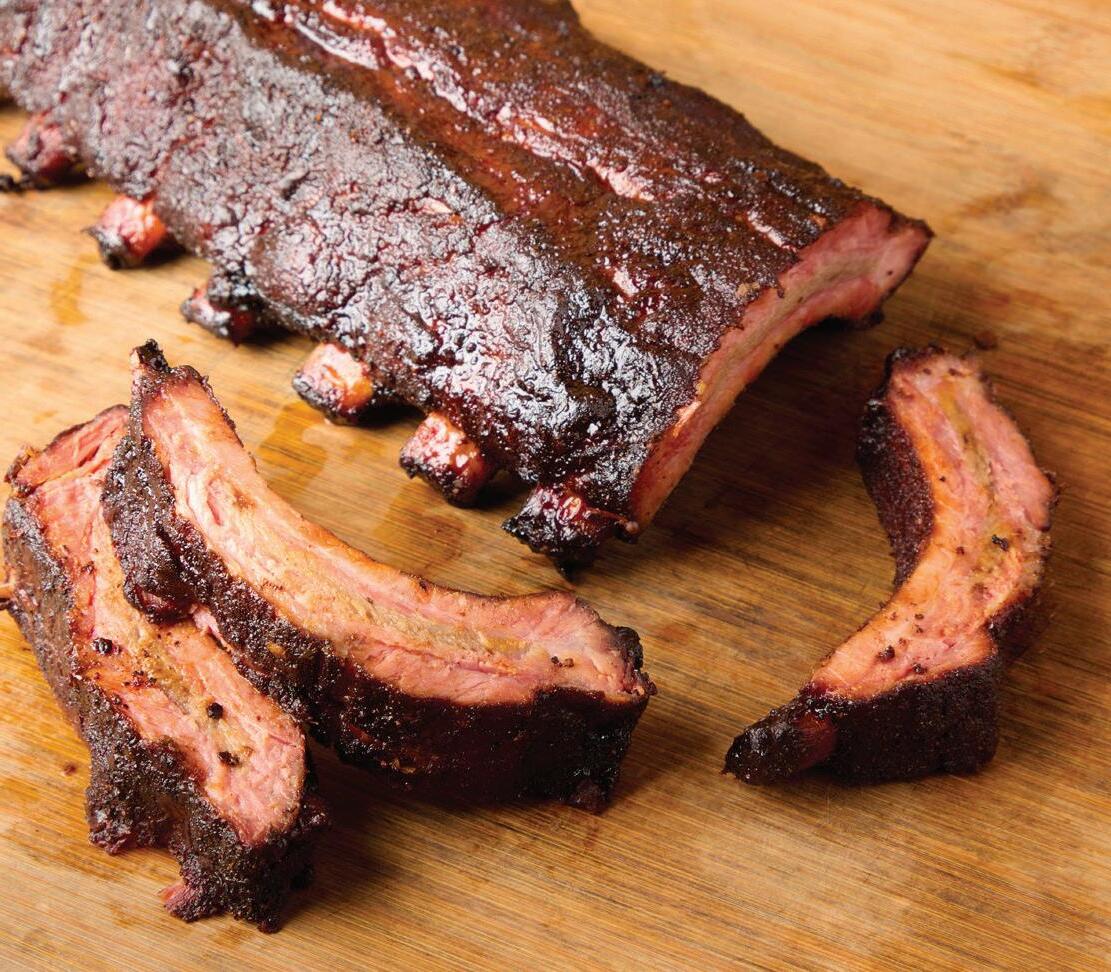
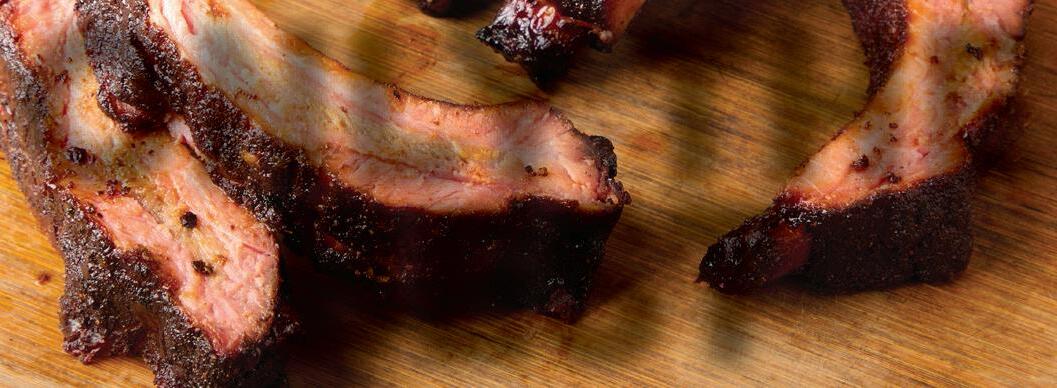


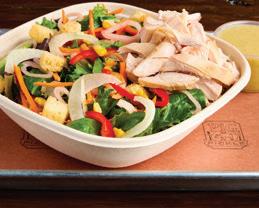

















During periods when I spend a lot of time online, my world becomes smaller. Meals are sometimes the best chance for me to be present with real life, to be a human with human needs. Beyond necessary nourishment, those workday lunches become opportunities to savor— not just flavors, textures and aromas, but also, time itself.
I’ve found myself savoring moments in a few local bars and restaurants lately, most of which are included in this issue’s highlighted spring cocktails. There’s something wholly decadent and timestoppingly satisfying about enjoying a martini in the late afternoon at a classic spot like Townhouse in Emeryville, or delighting in a refreshing mezcal cocktail during a bustling Friday happy hour at Oakland’s Parche.
Speaking of bustling, natural wines and wine shops are becoming quite fruitful in the East Bay. Berkeley is home to one of its most notable purveyors:

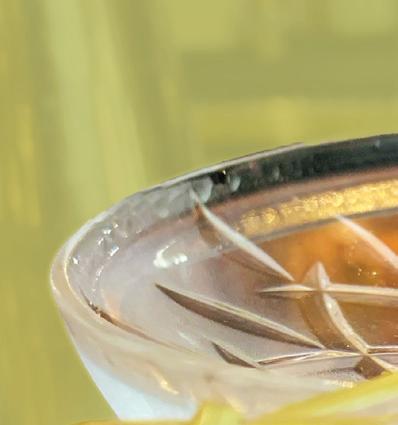


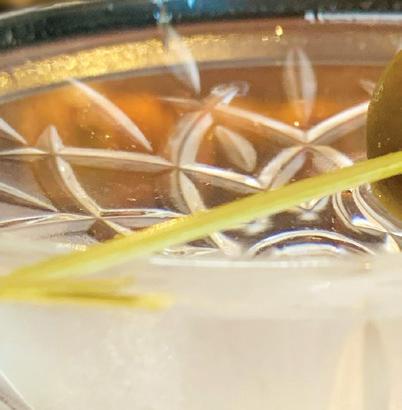
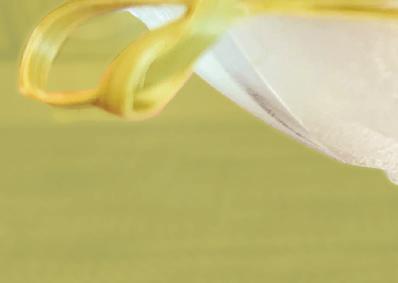




A martini served at Townhouse was the decadent break this editor needed.
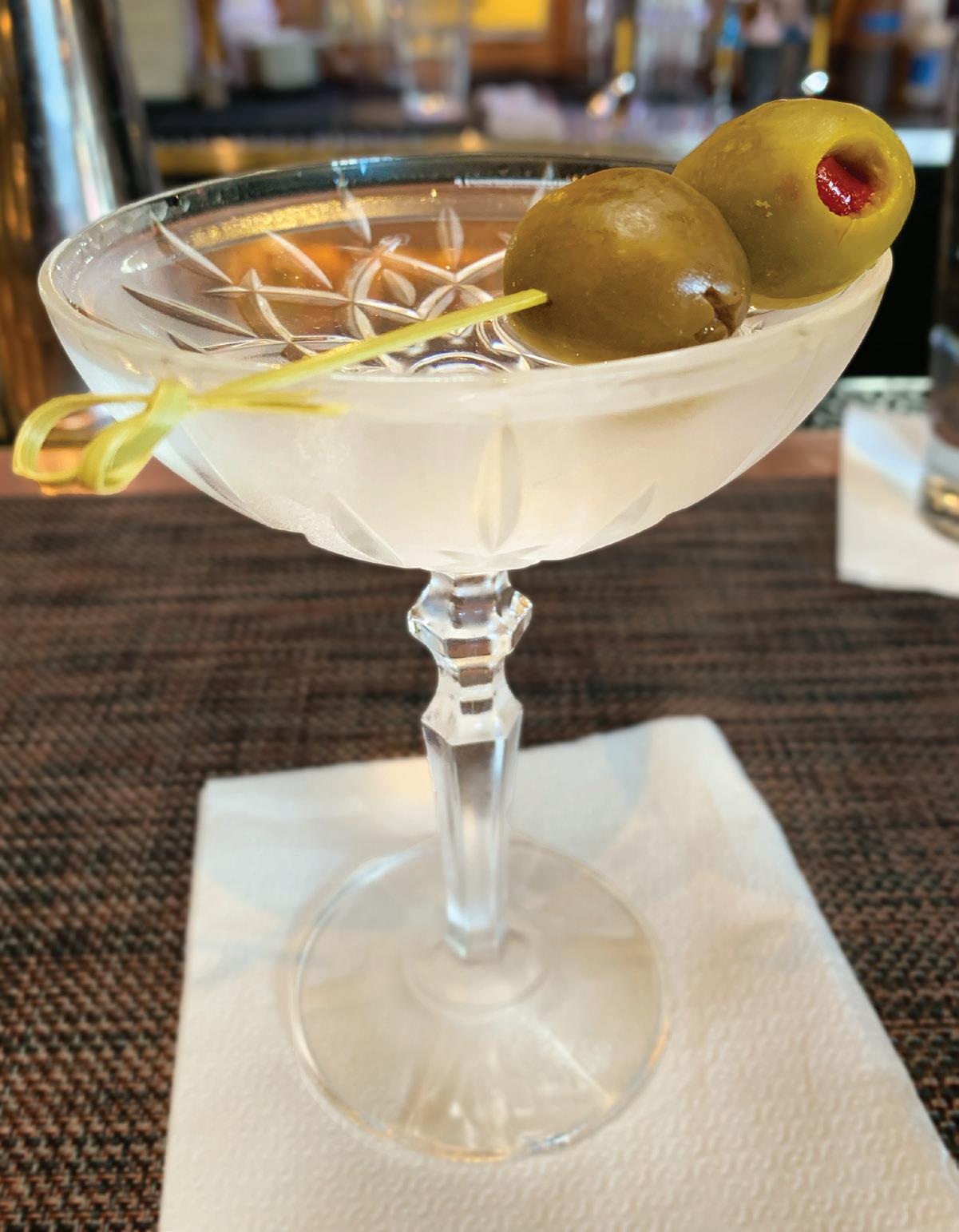
Broc Cellars, whose chic tasting room has inserted itself into the long-established punk-rock ethos of the Gilman District, starting with pioneering natural winemakers Donkey & Goat. Other wineries followed, and nowadays the area regularly erupts in joyous multi-popup block parties.
Food and drink can also be a bridge between cultures, a way to “travel” and get a sense of place, without the jet lag and airport hassle. Our region is positively rife with restaurants honoring the cuisines of various locales. We venture through the street foods and pantry goods of India in an article about Viks Chaat, its next-door market and the wholesale business driving it all. We also



feature a story on Middle Eastern cuisine and honoring Palestinian excellence in Zaytoon Mediterranean Restaurant & Bar in Albany.
As many of us become more interested in plant-based diets and where our foods come from, a story on foraging and cooking with mushrooms o ers cautionary info and inspiration. Yet another piece introduces us to the thrill of oysters at new seafood spots, The Salty Pearl and Small Change Oyster Bar, tapping into the nostalgia and romance of food and drink as well.
We hope this special issue inspires your own IRL experiences and sensory delights. Cheers and bon appetit!
— Samantha Campos, Editor
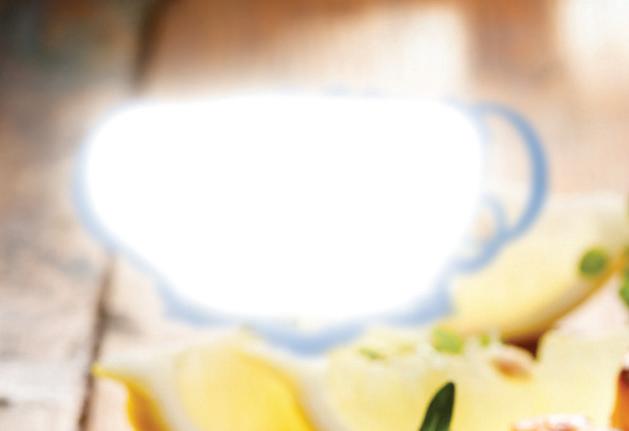
An Innovative Summer Program for Motivated Students & Athletes Ages 8-14











JUNE 10 THROUGH JULY 19




Warm weather has arrived and we have everything you need for picnics, BBQs, and outdoor gatherings.
So, get outside and enjoy the season!
Monday–Saturday 9 AM to 8 PM
Sunday 9 AM to 7 PM
(510) 653-8181
4038 Piedmont Avenue, Oakland PiedmontGrocery.com Time for Outdoor Dining!


The season’s highlighted libations from a few of the East Bay’s most loved bars and restaurants
Richmond’s The Factory Bar is an urban oasis, a dog-friendly lounge with humanfriendly drinks, frequent food popups and one of the best garden patios in the East Bay. Their spring menu includes nine new cocktails.
2 oz. Monkey Shoulder Blended Malt Scotch Whiskey
1 oz. Xila Licor de Agave Liqueur
2 dashes Angostura bitters
1 dash cherry bitters
Stir and pour over one large rock. Garnish with cherry and orange peel on a spear.
Serve in a Madras glass.
The Factory Bar, open Mon-Wed 4pm1am, Thu-Fri 4pm-2am, Sat 2pm-2am, Sun 2pm-1am; 12517 San Pablo Ave., Richmond. 510.778.1079. thefactorybar.net.
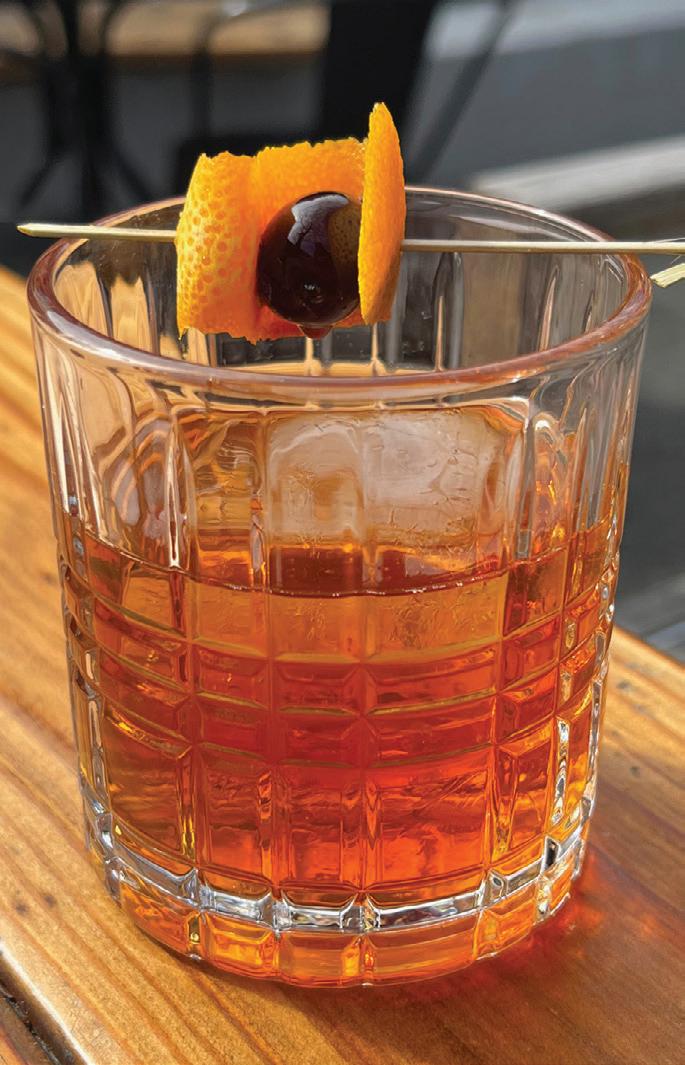
Albany’s oldest-running bar, Hotsy Totsy Club, opened in 1939. Often voted “Best Dive Bar,” the Totsy is really a neighborhood gathering place. It features a seasonal, world-class cocktail menu, and the popular Tacos El Autlense truck in the parking lot. Dogs are more than welcome.
1.75 oz. Amaro di Angostura
.75 oz. Kalani Coconut Liqueur
.75 oz. Small Hand Foods pineapple
gum syrup
Juice of one lime
Combine all and shake, double strain into coupe glass and garnish with a dehydrated lime wheel or edible flower.
Hotsy Totsy Club, open Mon-Thu 3pm-2am, Fri-Sun 12pm-2am; 601 San Pablo Ave., Albany. 510.526.5986. facebook.com/hotsytotsyclub.
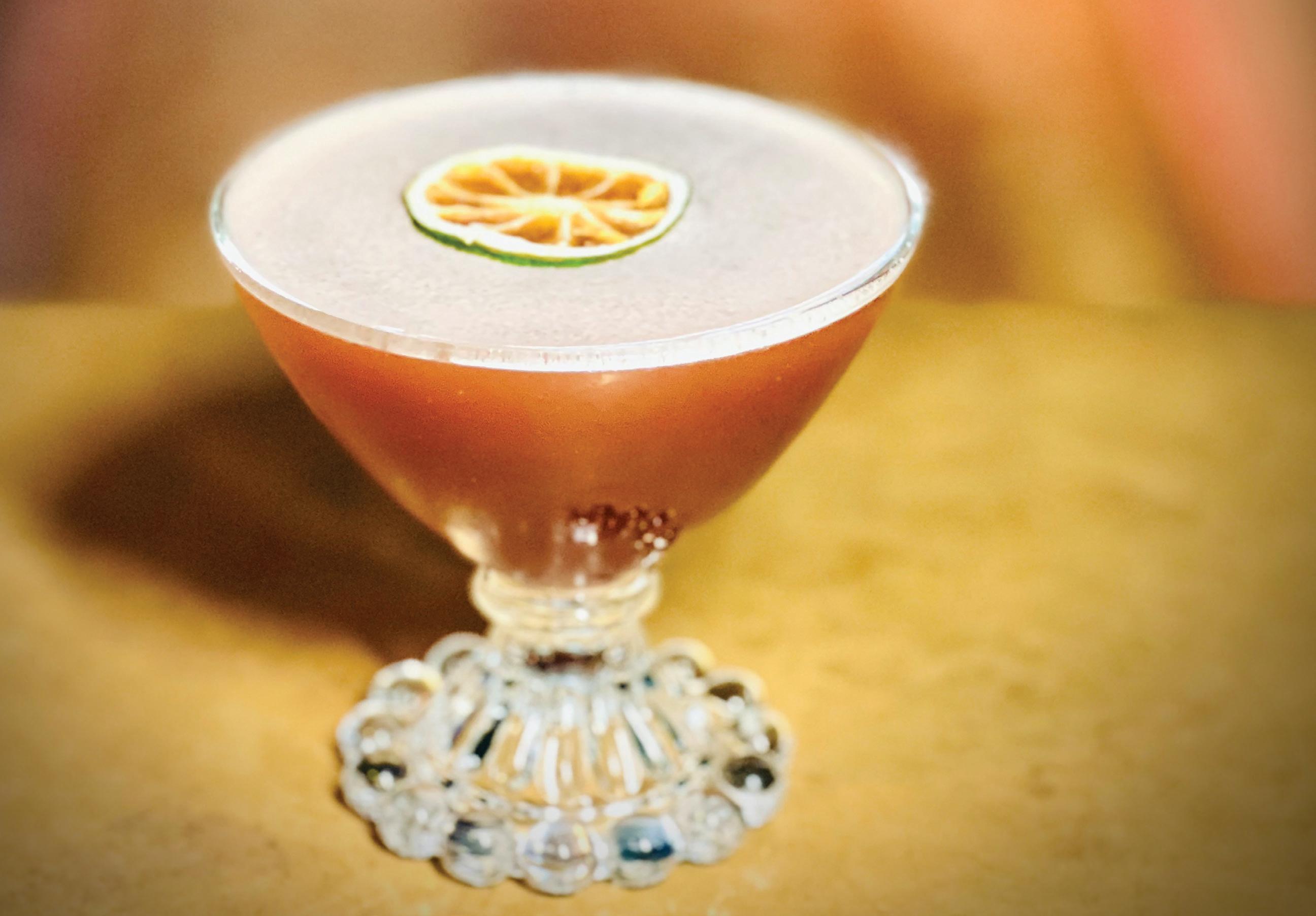
A stylish, modern Uptown Oakland lounge, Viridian’s food and drink menus focus on sustainability and seasonality, with nostalgic yet innovative Asian flavors.
‘WOOD DRAGON’
Cognac, White Peach, Yuzu, Osmanthus, Pandan
1.5 oz. Cognac
.5 oz. Yuzu Liqueur
2 oz. White Peach Pandan Cordial*
Shake over ice, strain and serve.
*WHITE PEACH PANDAN CORDIAL
1.5L White Peach Calpico
750g white sugar
600ml lime juice
1/2 tsp. Pandan Extract
Viridian, open Sun, Wed-Thu 5pm-12am, FriSat 5pm-2am; 2216 Broadway, Oakland. viridianbar.com.
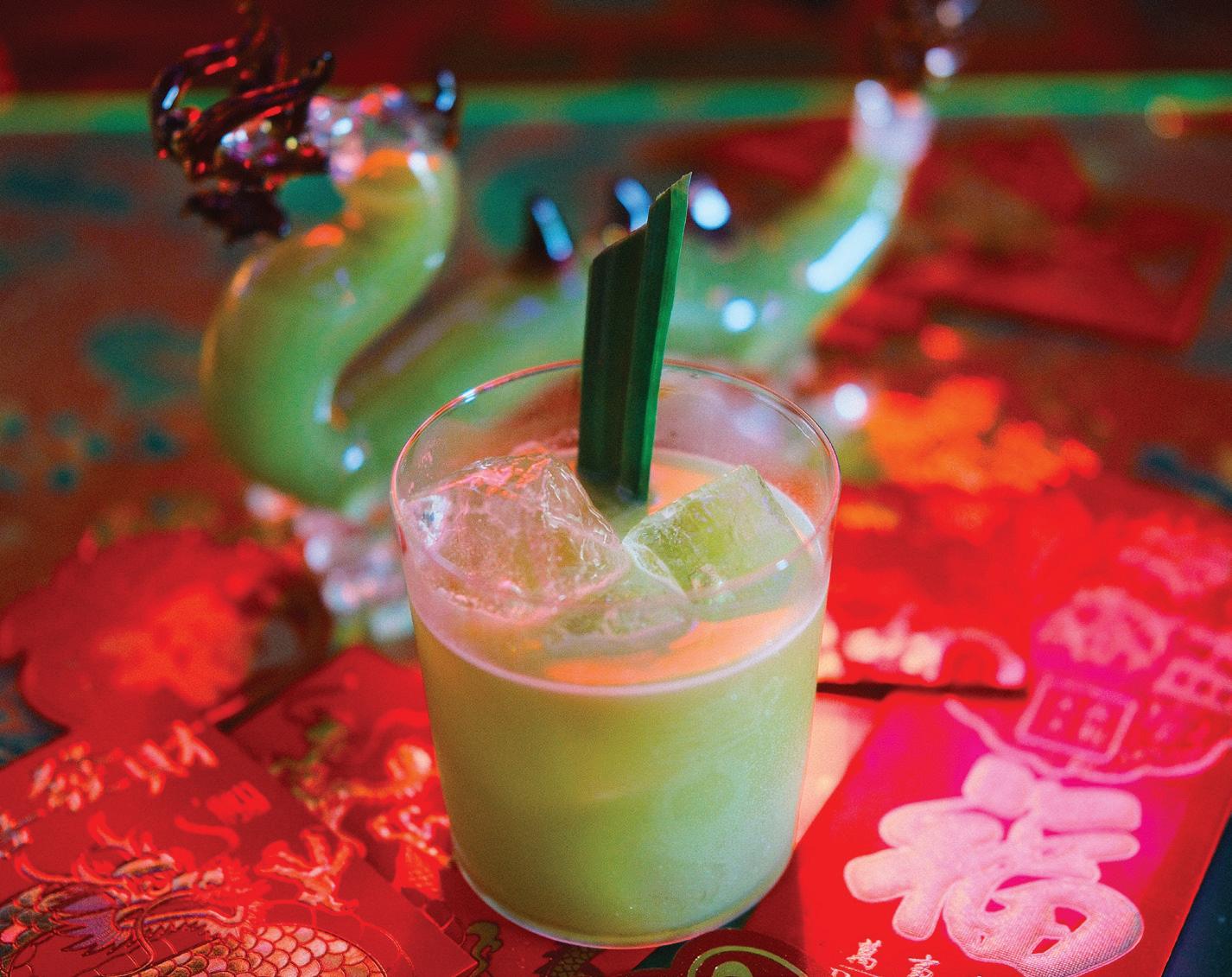
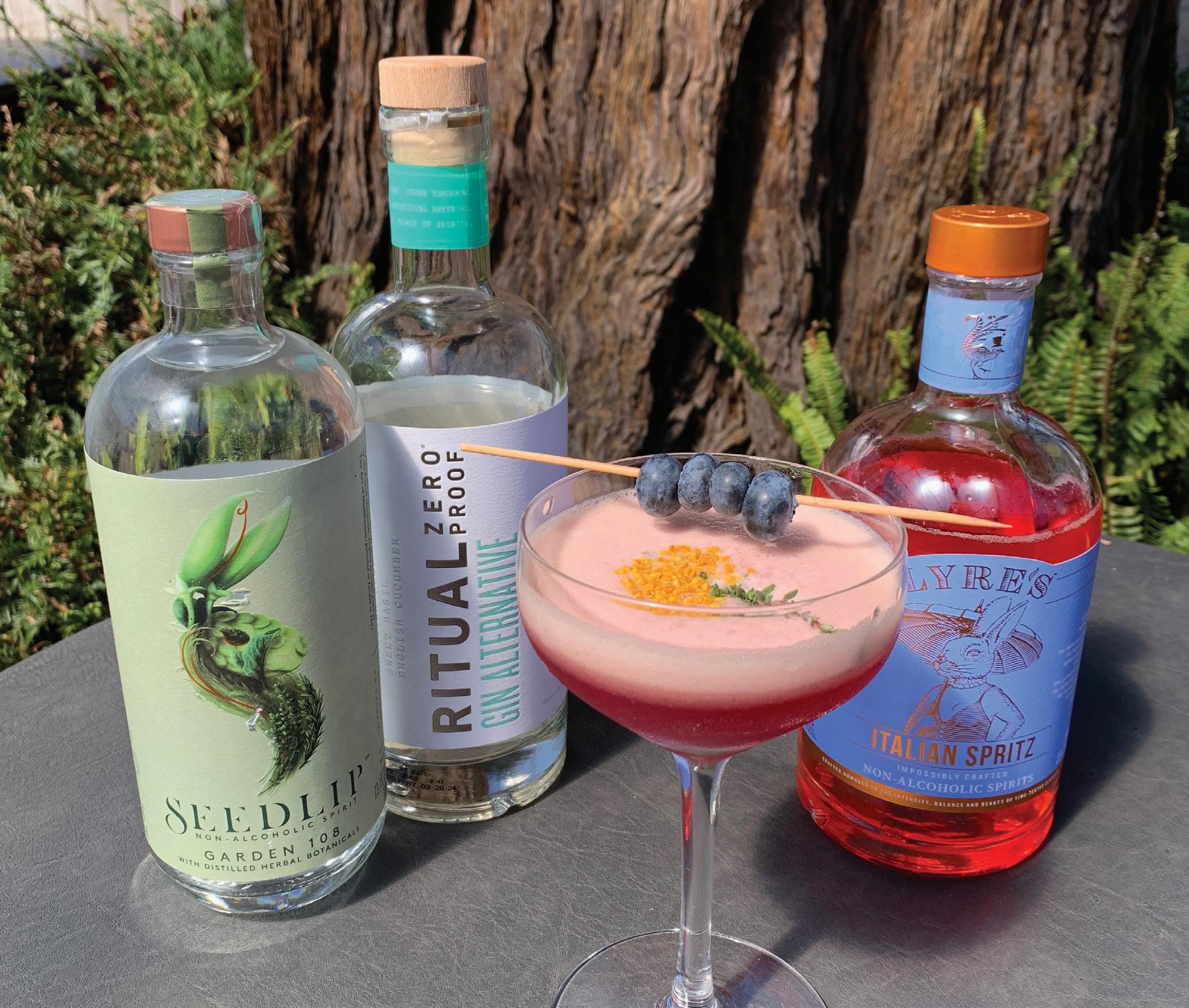
A California comfort food classic, Townhouse has been an Emeryville institution since 1929. Needless to say, the place has stories—and loyal regulars, for good reason. The following is bartender Sam Elder’s non-alcoholic take on the Prohibition-era Bee’s Knees cocktail.
1 oz. Seedlip Garden 108
1 oz. Ritual Zero Proof Gin Alternative
A bar spoon (tiny amount) of Lyre’s Italian Spritz
Fresh thyme
Handful of blueberries
1 oz. lemon juice
½ oz. honey
½ oz. in-house lavender syrup
Muddle juice, herbs and fruit.
Townhouse, open Tue-Sat, 2-9:30pm; 5862 Doyle St., Emeryville. 510.652.6151. townhouseemeryville.com.
Temescal’s North Light is a cozy, contemporary lounge with a few of our favorite things: books, records, a charming back patio, and tasty food and drinks. They call the following “a scrumptious, late-spring cocktail with strong savory notes and tartness that will keep you coming back for more. Created by North Light’s bar manager Zach Edwards, it’s a delightfully crushable addition to any brunch or mid-day cocktail break.”







PARCHE ‘Health n
Wealth’ is a spirit-free cocktail that’s similar to a spicy mango lassi.

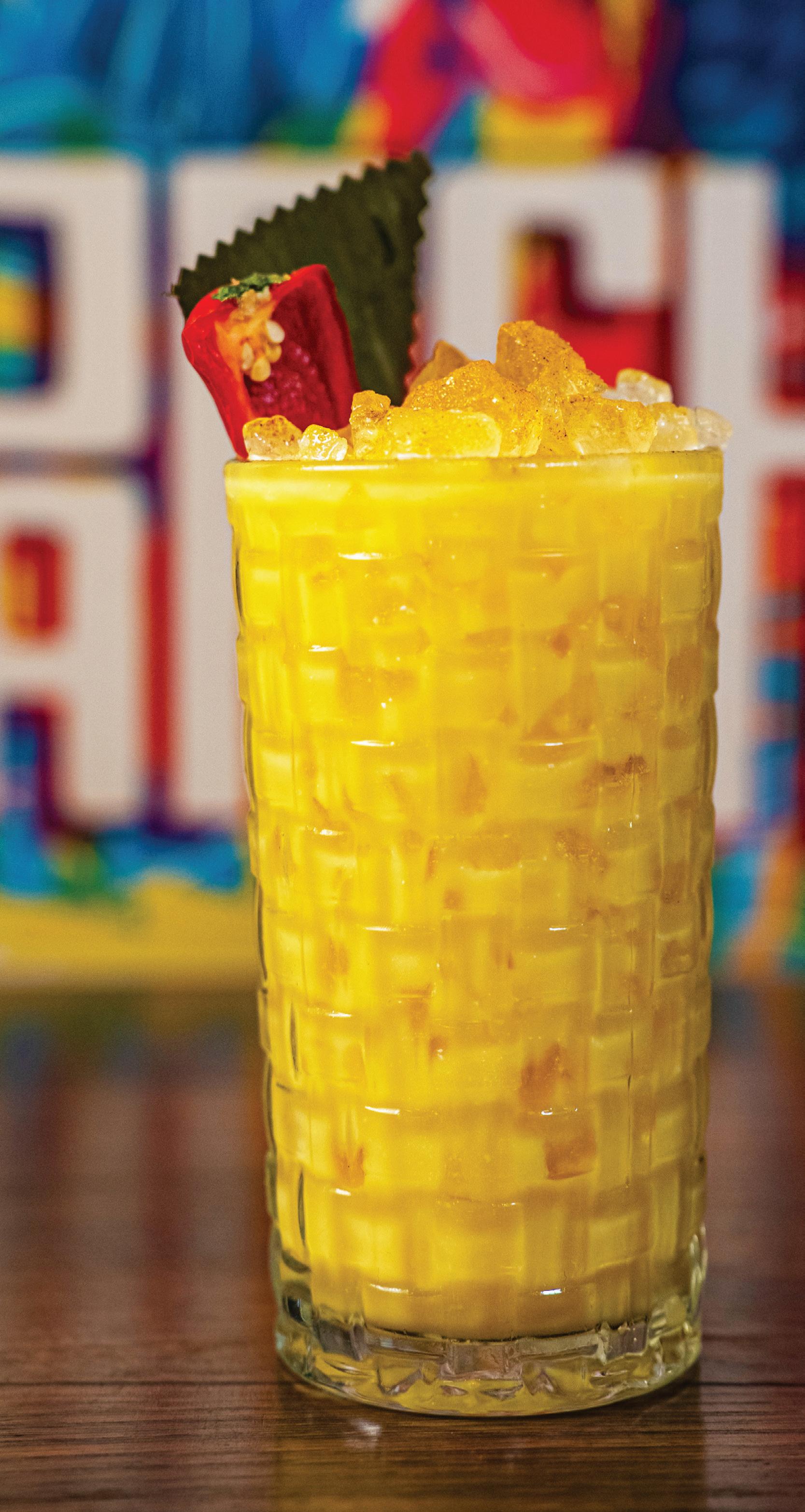
Build in a Collins or Hurricane glass:
.75 oz. lemon juice
.5 oz. cucumber syrup (1:1 ratio
cucumber juice and white sugar)
1.5 oz. apple/celery juice (1:1 ratio)
1.5 oz. Tequila Blanco
Crushed ice
Healthy pinch of tarragon (roughly 8-10 leaves)
Swizzle it.
Garnish with a lemon wheel and a straw, and you’re o to the races!
North Light, open Mon-Thu 4-11pm, Fri 4pm-12am, Sat 2pm-12am, Sun 2-11pm; 4915 Telegraph Ave., Oakland. 510.891.1113. northlight.bar.
A contemporary Colombian restaurant in Uptown Oakland, Parche has been drawing crowds with its upscale, art-filled ambience and flavorful, inventive cuisine. They say the following “uses tropical ingredients and is similar to a spicy mango lassi. This non-alcoholic cocktail pays homage to the ethnically diverse Bay Area.”
1 oz. mango purée
.5 oz. coconut cream
.5 oz. simple syrup
1 oz. coconut water
1 oz. orange juice
1 oz. ginger beer
Dash of habanero bitters
Dash of turmeric powder
Shake first five ingredients, add ginger beer and habanero bitters, then sprinkle with turmeric powder.
Parche, open Sun-Thu 11am-9:30pm, Fri-Sat 11am-10:30pm; 2295 Broadway, Oakland. 510.922.9687. parcheoak.com. « PHOTO COURTESY OF PARCHE
































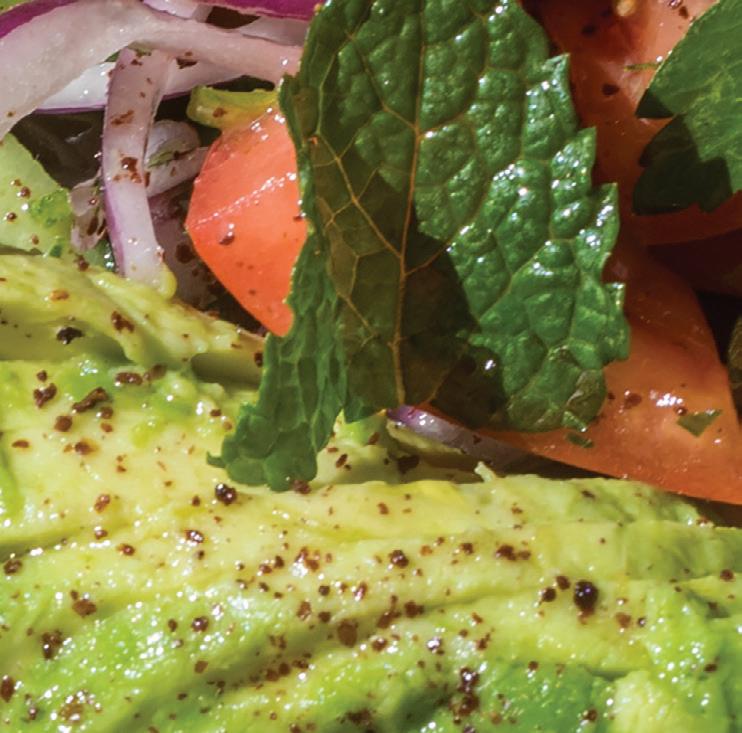
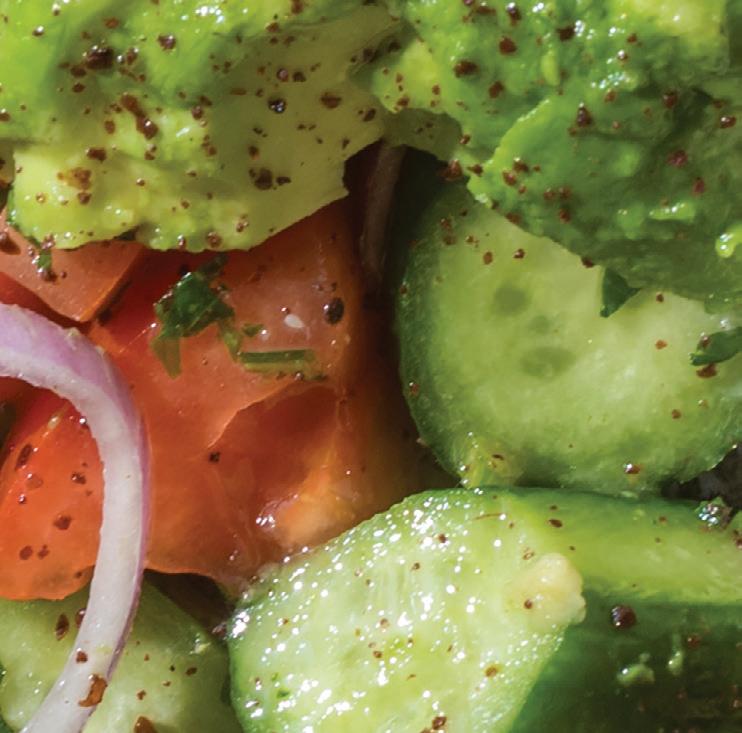




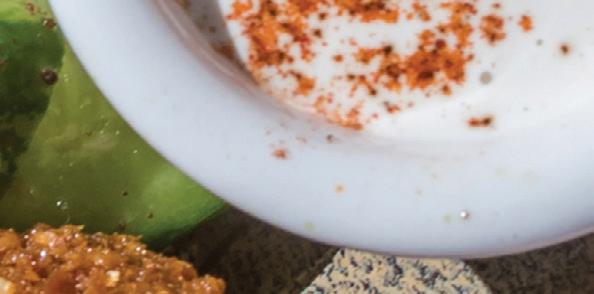





 BY Michael Giotis
BY Michael Giotis
In 2016, Zaytoon Restaurant opened to expand people’s conception of what Middle Eastern dining can be. In the decades since, the tastefully decorated Albany mainstay has achieved much more than just delicious plates. It is a display of Palestinian-American excellence.
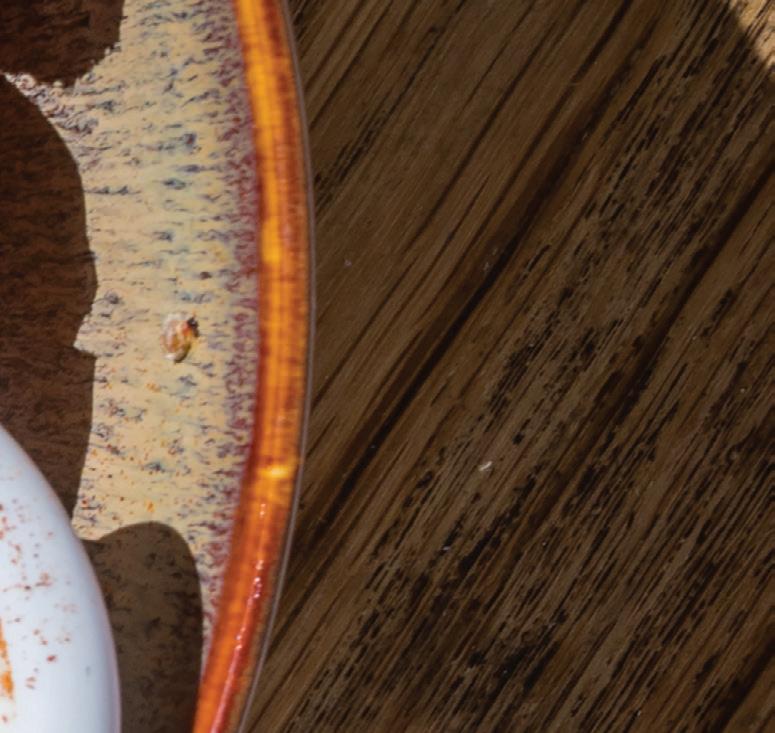
Zaytoon incorporates the palate of local patrons by representing the broad mix of Middle Eastern and Mediterranean ethnic groups in the East Bay.

Always looking to expand minds, the restaurant recently launched a brunch service. Similar to the decision to serve craft cocktails in a Mediterranean restaurant, adding brunch is a step in the long journey to proving that food from the Levant, along the east Mediterranean, and the Middle East could be as successful as other cuisines more familiar to East Bay eaters.
Both co-owner Izat Eliyan and chef Haithem Salman were born in Jerusalem.
Eliyan came to the States in 1987 at the age of 18. “[In those years in Jerusalem,] I spent a lot of time with my family in the olive orchard where we shared laughter, stories and meals that were seasoned with the love and warmth of our Palestinian heritage. It’s these cherished memories that inspired me to bring a taste of my childhood to the East Bay,” he said.
The name “Zaytoon” means “olive” in Arabic, a symbol of peace and home.
Zaytoon is “a celebration of my roots and a homage to the rich flavors that define Middle Eastern and Mediterranean cuisine,” said Eliyan. “Through our dishes, we hope to o er a glimpse into the soul of Palestine, Lebanon, Syria, Morocco, Greece, as well as the myriad of countries that surround the Mediterranean Sea. Our menu celebrates the bustling streets of Jerusalem and lively conversations around the family table.
“We are honored to have been welcomed into the East Bay for the last eight years. The community has been very welcoming and supportive, and they’ve embraced our culture and cuisine,” added Eliyan when asked about the local acceptance of his vision. “I am proud of my heritage and enjoy sharing our delicious food with the community.”
Let me just say that, as a Greek who has had his fair share, the tabbouleh was the best I have ever tasted. Sitting in the lovely space sipping on a late lunch cocktail,


my wife and I knew we were in for a treat the moment we tasted the quality of the olive oil drizzled over the hummus. Very fragrant without being bitter, with a taste that developed on the tongue as we held our breath. A Greek knows.
“It’s almost the same thing, but different names and a little bit touches and spices,” said Salman, agreeing that Greek dishes are mixed in with all these other national cuisines. It is in the historical roots of the region, a global crossroads from Mesopotamia to Crete, the Ottoman Empire to the Suez Canal.
In the parts of the world covered by these various terms, the indigenous qualities of ingredients are essential, especially in how they mix and amplify each other. The olive oil, for example, was made in Italy from olives grown in Tunisia.
“Even you can smell [the quality] when you open the bottle,” said Salman. Jordanian, Lebanese, Syrian, Moroccan, Turkish and Greek plates influence menu items at Zaytoon—and there is a lot of overlap.
“Like moussaka,” said Salman, “we have it back home, the same but different.” It is a national dish in Greece that was later adapted across the region.
With any national dish or comfort food, there’s never only one way to make it. Each family, each household has its own twist, its own secret ingredient. Zaytoon takes that approach to the next logical step, incorporating the palate of local patrons by representing the broad mix of Middle Eastern and Mediterranean ethnic groups
found right in the East Bay. Before all else, Eliyan and Salman want Americans with Middle Eastern backgrounds to come enjoy comfort food of the highest standard.
“We’ve made it as we learned from our mom,” said Salman.
Family, community, culture, these commonplace things have not always been readily available to Americans whose families have come from that often tumultuous part of the world. While many nationalities come to America, people from these cultures have not always been accepted in white-dominated spaces in this country.
“Coming out of the period of 9/11, you know, was harder for people from that part of the world,” said Eliyan, whose children were picked on in school at the time. “That wasn’t an easy time on us, but you know, [then] people started getting interested in the Middle East… What’s their culture? What do they eat?”
And now again, “being a Palestinian, with what’s happening in the Middle East and especially in Gaza, I feel that it is very, very, very, very difficult. And it’s in our psyche, you know?” added Eliyan, “It’s kind of, like, it’s in your mind all the time.
“As a Palestinian, I grew up in Jerusalem. I lived my youth over there, and I feel that a lot is lost right now in terms of human rights,” said Eliyan. “What about the human rights of 2.2 million starving people in Gaza? It’s not
about one side or another, just about humans. So it is difficult for us right now.”
That is part of the mission of Zaytoon, to repaint the picture of the Palestinian people as sophisticated citizens of the world and to show how their culture has mixed with other peoples of the Mediterranean over the millennia.
Contrary to the image of war and death associated with Middle Eastern cultures and especially the Palestinians, said Eliyan, “we do want to be successful. We want to create things. We want to send our kids to schools. We want them to become lawyers and doctors and writers, and live a normal life.”
This team of Palestinian investors, owners and chef came together to create an experience of the American dream through the greatest medium of all, food.
Speaking of the food—and those twice hinted-at cocktails—we delighted in the quality of both. The recommended cocktail “Arabian Nights” was complex and not too sweet and perfectly accompanied moist, umani-seared grills—we had chicken and lamb-beef shawarma, which were excellent. I was surprised that the kefta, which I generally avoid, was maybe my favorite dish at lunch. And the pungent falafel, which we eat a lot of, had a perfectly balanced crunch-of-crust over bounce-of-sponge. Tastes of home.
Zaytoon is located at 1133 Solano Ave., Albany. The restaurant is open every day, except for Monday, from 11:30am to 9pm. Brunch is served Saturdays and Sundays from 11am to 2:30pm.
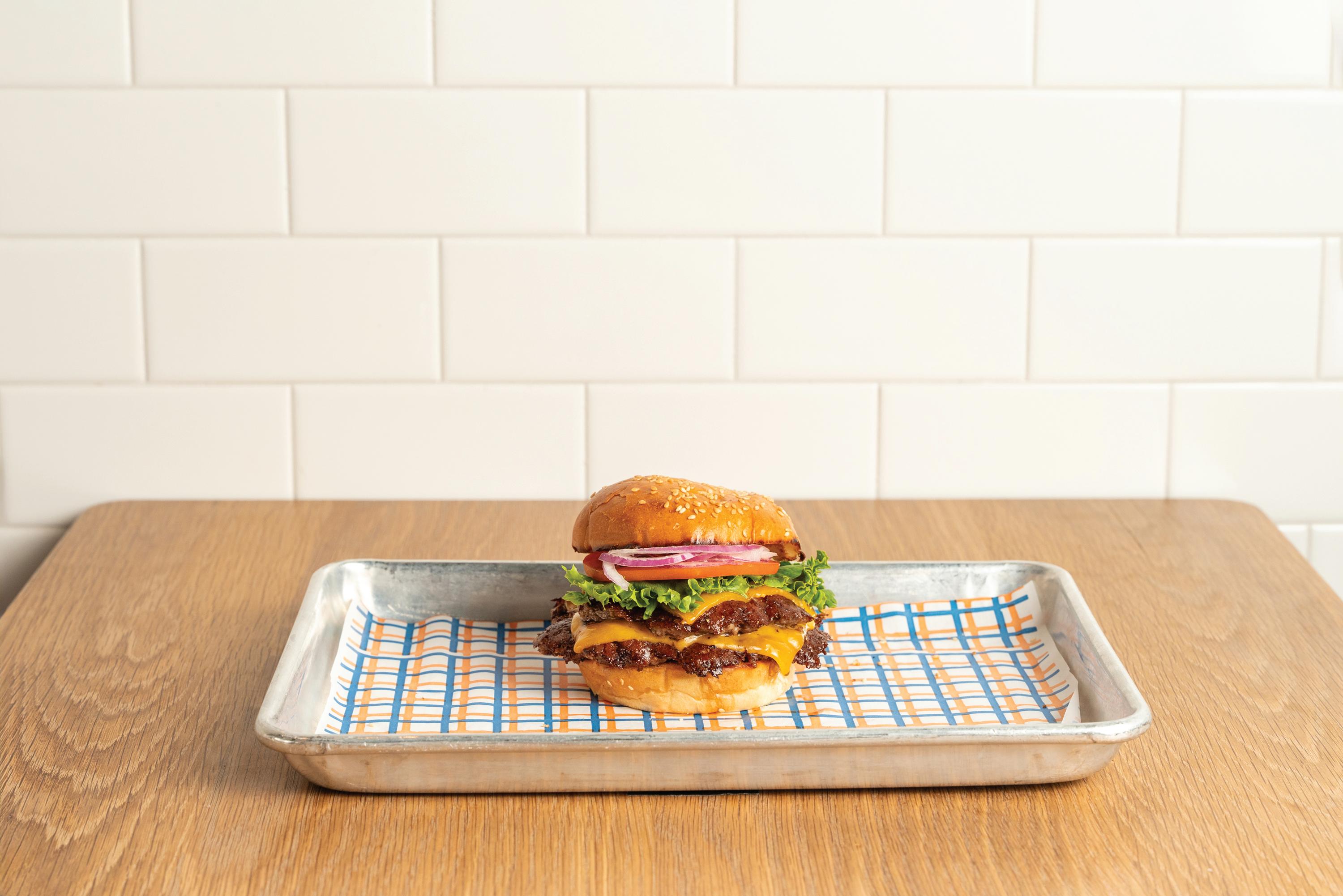









The Salty Pearl and Small Change Oyster Bar satisfy ostreaphiles and the bivalve-curious
BY Jeffrey Edalatpour‘He was a bold man that first ate an oyster.’ – Jonathan Swift

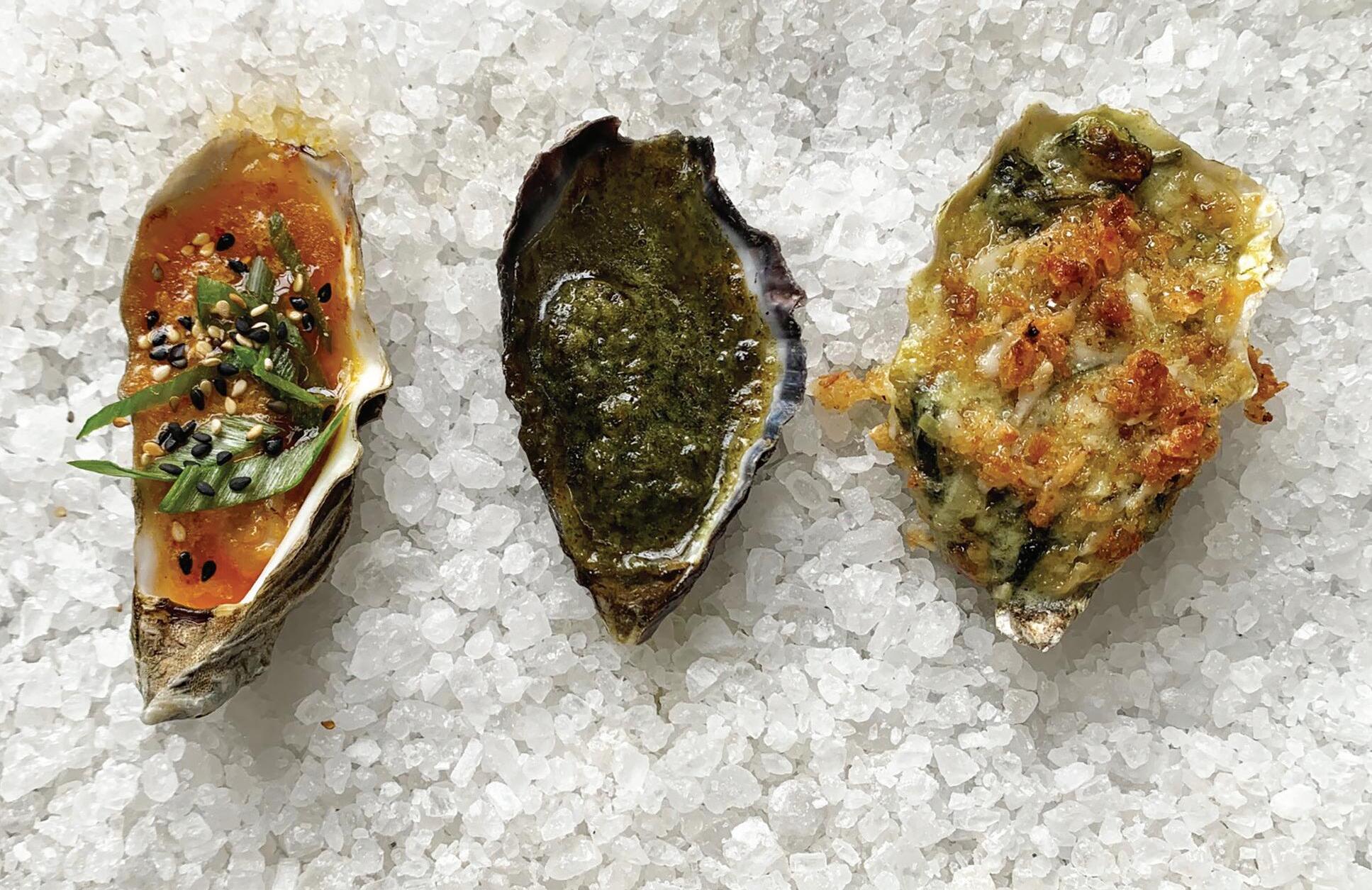
Chef Lauryn Dakota Holbert understands why some people are put off by oysters. When she’s asked her friends, “Don’t you just love them?”, the replies have ranged from, “Oh my God; I’ve never had one,” to “They’re so slimy!” Oakland’s Small Change Oyster Bar chef loves seafood and said she tried her first oyster when she was a teenager. To encourage people to try oysters, Dakota Holbert starts them out with smaller varieties such as a Kumamoto or Kusshi.
“Having a broiled oyster or poached in butter—there’s nothing bad about butter!” Dakota Holbert said. “If you’re not familiar with that briny taste of the ocean in your mouth, putting a mignonette or lemon or hot sauce on it is a way to damper the taste.” The texture of oysters, which are similar to mushrooms
or eggplant, is what throws people off. It’s the chef’s job to serve a gooey dish in a way that the diner doesn’t notice the offputting texture.
Most of Small Change’s oysters come from Tomales Bay Oysters in Bodega Bay and through Berkeley’s Monterey Market. “We have a great protected watershed area where so many oyster beds are laid, so it just made sense to have [the oysters] coming from somewhere really close by,” Dakota Holbert explained. “Especially with seafood, the freshness is really important.” Having taken a tour of the Tomales Bay oyster beds, she said, “Learning about where our food’s coming from is always good for being able to share that with our customers.”
Branden Nichols started Small Change as a pop-up. And Dakota Holbert has been working with him to design a more robust menu for the soon-to-be-opened
brick-and-mortar in Temescal. They initially met when the chef was working at Sister Restaurant. Then they met a second time at an event at the Oakland Whiskey Library after Sister had closed. Nichols hired Dakota Holbert to help with the ongoing pop-ups and to run the kitchen in Temescal.
The expanded menu was inspired by classic dishes that are served in seaside towns and by restaurants that specialize in seafood—lobster rolls in Maine, oysters in the South, seafood in Seattle. “The menu in my head is huge, but I had to pare it down to be a reasonable restaurant menu,” Dakota Holbert said. “I wanted to get a nice core with what Branden had started with and then build from there.
“Having grown up in the Bay Area, we’re very spoiled to have such a great breadth of food cultures here,” the chef said. “If you’re on a body of water that


provides you with your food, it’s nice to be able to use a protein that works with the staples from your ecosystem, your produce, your vinegars, your wines. We’re lucky to have a lot of great cultural influences here.”
Oysters served on the half shell ($22/$40) are listed at the top of Daniel Pirello’s The Salty Pearl menu in Oakland. For two years, Pirello had a loyal following in Richmond, where he ran the Rocky Island Oyster Company. That was until The Craneway Pavilion’s landlord gave them two weeks’ notice last June to make way for a private pickleball club. The restaurateur said the eviction was unexpected. “The community was devastated. We were devastated,” he remarked. “I had to lay off about 50 people because we had employees at three restaurants in the event center.”
Fortunately, Pirello already had been in the planning stages to open The Salty Pearl in Jack London Square. “It was going to be our second location because Rocky Island had gotten to the point where we had a great following,” he recalled. After securing a beer and wine license, The Salty Pearl opened at the start of 2024. In addition to the “great location,” Pirello explained that the restaurant is in a shared space with the Planted Table.
“We sublease from them and have a pretty unique setup,” Pirello said. “We are open Thursday to Saturday, and the other company uses it during the day and the other days of the week.” This built-in flexibility has afforded Pirello a manageable rent and schedule. “We’re going to add hours once we get more comfortable,” he noted.
Rocky Island served oysters with a more informal approach inspired by the clam shacks of New England. “You could grab a lobster roll and a cup of clam chowder and go sit by the water,” Pirello said. When he was looking for a second location, Pirello wanted to open a date night spot,
»











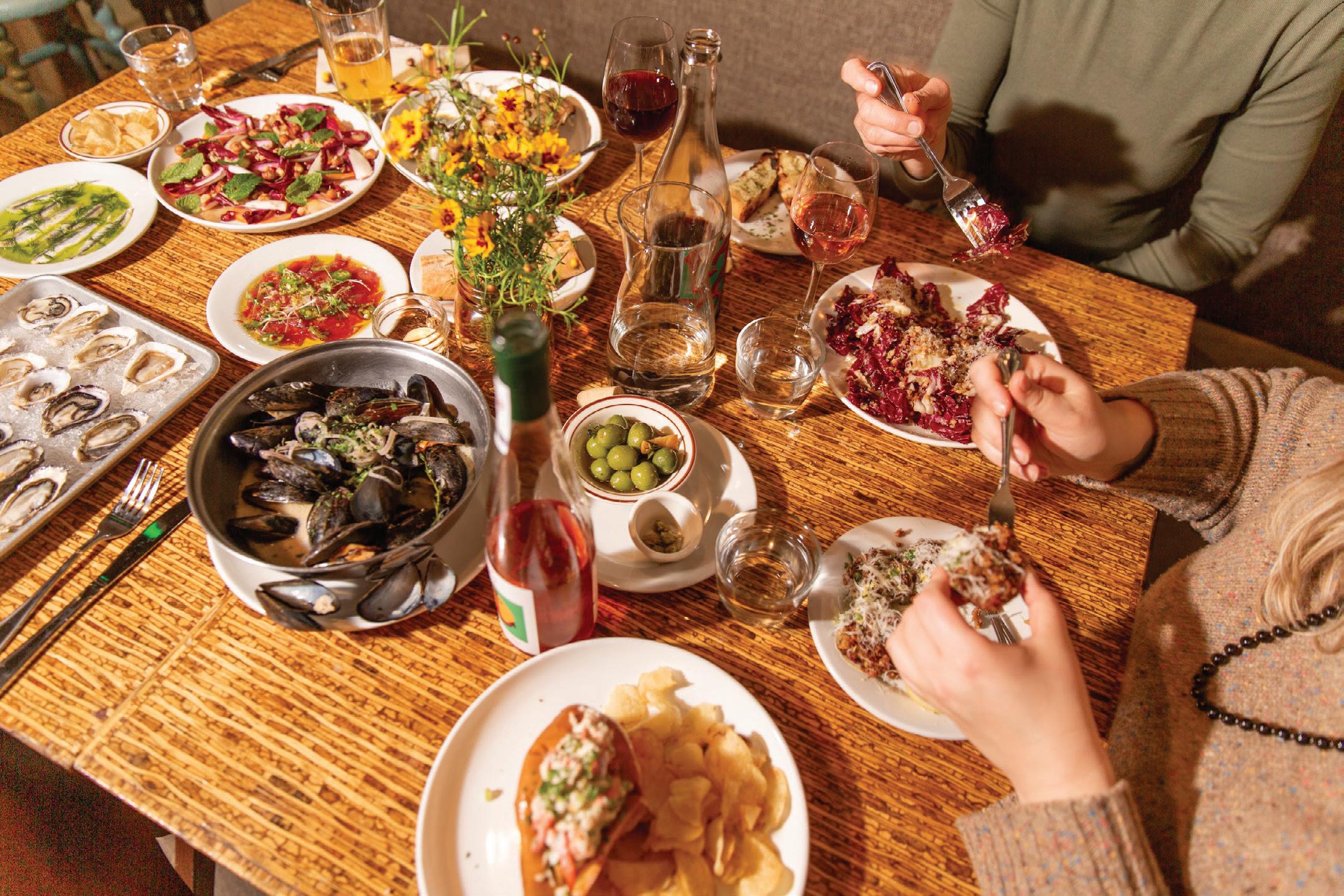
« “something that was more elevated where you could have a nice glass of wine with your crudo and eat a seasonal seafood dish.” He’d had the name “Salty Pearl” in his head for quite some time. When he saw the space in Jack London Square, he knew it would work there as an extension of the original brand.
Since he first opened Rocky Island, Pirello saw that a connection to maritime cultures was suffused with nostalgia. “People gather with their families to eat these foods,” he observed. His grandfather taught him how to dig for clams. “We would dig for steamer clams out in the marsh behind the beach house he built, and we would cook them together,” Pirello recalled. Eating clams today still transports him back to those childhood memories.
Oysters, though, differ from the
East Coast to the West. “East Coast oysters are typically smaller. They have a shallower cup, and the flavor profiles are very different,” Pirello said. On the East Coast, he added, there are no barbecue oysters. People eat them on the half shell, exclusively, unless they’re having oysters Rockefeller.
“When I moved out here, I drove up to The Marshall Store, and there were people eating big plates of barbecued oysters with garlic and herb butter and garlic bread,” he recalled. “I dug a little bit deeper, and I think it’s driven by the style of these oysters.”
An order of a mixed dozen at The Salty Pearl typically includes oysters that have been shipped overnight from Island Creek Oysters in Duxbury, Massachusetts. “They’re able to provide incredibly fresh products to places all over the country,”
Pirello said. “And I’m serving really fresh oysters from New England right next to some Marin Miyagi oysters from Tomales Bay. And then there might be some from British Columbia or Washington.”
He likes to post little bios about the oysters they’re serving each week to educate a casual oyster lover. New England transplants, who haven’t had a Cape Cod oyster in decades, have also discovered The Salty Pearl. Said Pirello, “They’re so excited to have them and a cup of clam chowder. It really strikes a nostalgic chord so deeply for them, and that’s what our restaurant is really based on.”
Small Change, pending open hours, Wed to Sun 3-9pm, 5000 Telegraph Ave., Oakland. 925.212.1897. smallchangeoyster.com.
The Salty Pearl, open Thu and Fri 4-9pm and Sun 5-9pm, 550 2nd St., Oakland. saltypearl.us.
















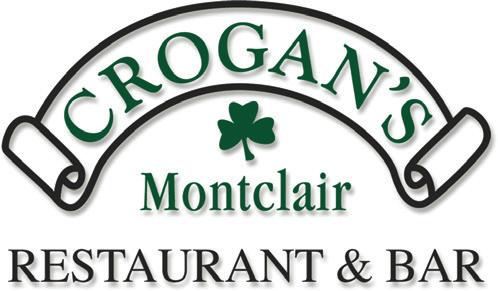





























 BY Lou Fancher
BY Lou Fancher





Aconversation with Marie Brennan about fungi on a blustery day in late March is swift, targeted and overwhelmingly shroomy
That’s shroomy in the best sense of the word, referring to the mushrooms, wild foraging and plant-based foods that have triggered surging public interest in mycological activities, cuisine, history and culture.

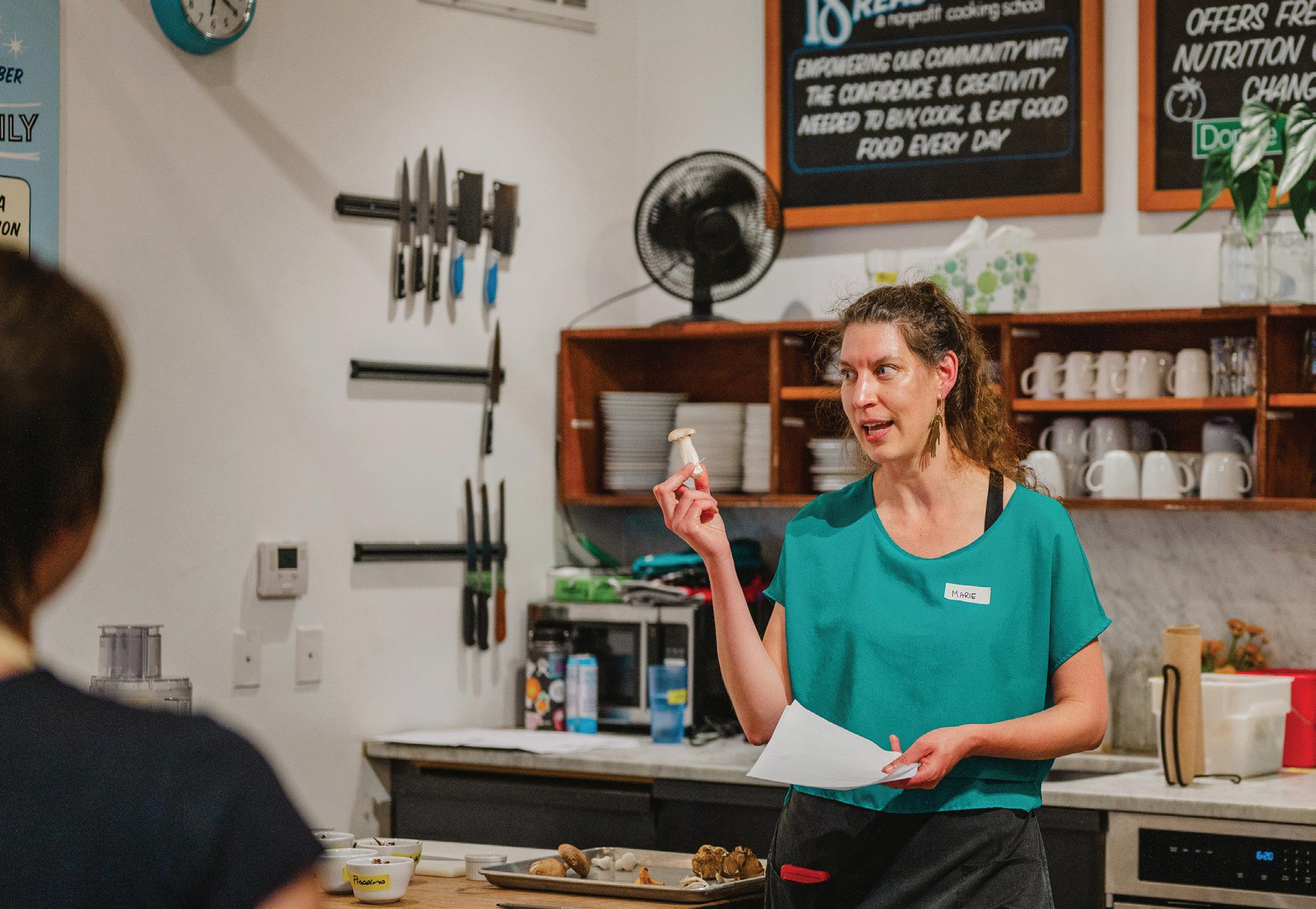
Brennan grew up on a dairy farm in Baraboo, Wisconsin, and at age 14, embarked on the life of a vegetarian. Introduced to quinoa, miso and other delectable edibles two years into her culinary journey, she became a vegetable enthusiast, keen fermenter and avid investigator of the million-and-one ways cooking and eating mushrooms (and other yummy plant-based foods) can go right—or wrong.
Ever the hedonistic adventurer, after earning a bachelor’s in dietetics from the University of Wisconsin, Brennan took off for South Korea to teach English at a public middle school. Four years in classrooms provided the best education possible for effective teaching. Upon returning to the United States, she studied culinary arts at Berkeley’s Bauman College. Brennan then became a certified natural chef. And now, in 2024, she is an educator, consultant, private chef and recipe developer.
This means a sold-out “Magnificent Mushrooms” class, with its eager participants waiting across the Bay Bridge at the 18 Reasons nonprofit cooking
school in San Francisco. “We have about 25 minutes to talk,” she says. “And yes, the class sold out immediately, and there’s a huge waiting list.
“The interest is partly because people know mushrooms are good for you and partly because more people are interested in plant-based foods,” says Brennan, “along with personal care items and other things. They may want to be vegan or vegetarian or not. But regardless, people are looking for good meat substitutes like mushrooms that have a lot of umami, that earthy flavor associated with a satisfying taste and the feeling of fullness. Mushrooms have a texture that’s chewy, similar to meat, but not involving animals. It’s sometimes called ‘Buddhist meat’ for those and other reasons.”
In her work with students and clients, and from her research of public opinion, food movements and preferences, Brennan has found texture, not taste, to be the most divisive feature of mushrooms.
“Most of the time people who dislike mushrooms say they’re gummy and gross. One guy in my mushroom class who was
in his mid-50s told me he hadn’t touched a mushroom since 7th grade. We prepared my Shiitake Bacon, and I went over to his table first for the tasting. He picked a piece up, put it in his mouth and said, ‘This is delicious.’ I say learning to prepare them properly is essential,” Brennan notes.
The recipe and cooking methods for Brennan’s “secret weapon” bacon are often included in courses like the one she’s teaching later in the day. Along with the “Magnificent Mushroom” course’s King Trumpet Cioppino, Mixed Mushroom Miso Toasts, a warm salad and a sweet and savory shortbread that all feature mushrooms, students will learn to prepare a dish that incorporates Shiitake Bacon.
Brennan says it has the crunch and salty savoriness of bacon and can be made with a variety of mushrooms, from shiitake to oyster, king trumpet and even criminis blossom mushrooms. The simple, threestep recipe (available under “recipes” at Brennan’s website, hedonistinmoderation. com) she says results in something akin to “fairy dust” that “will transform a lackluster dish into a shining star.”
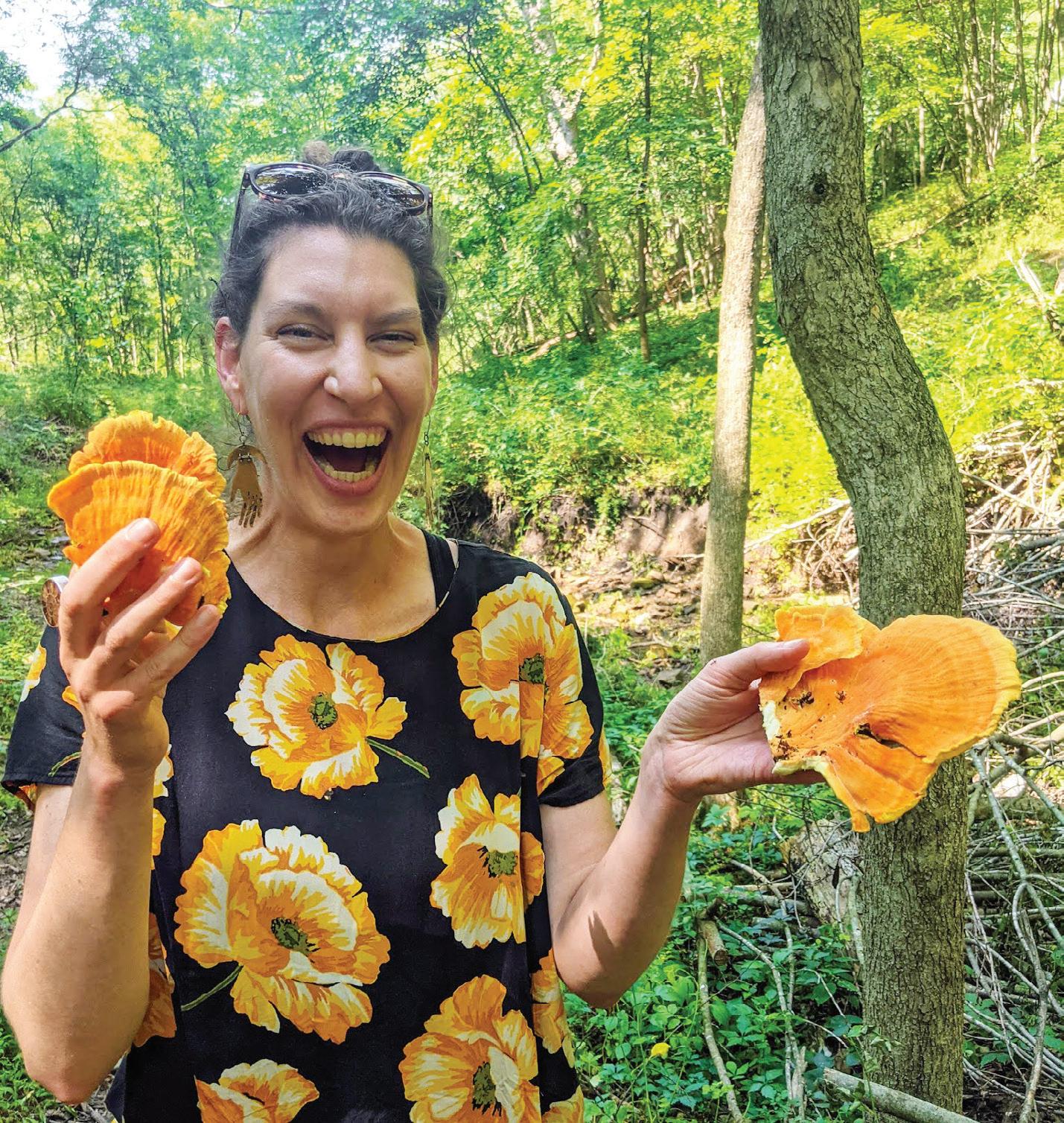
Along with learning to maximize and highlight the best flavors and textures of cooked mushrooms, education about the inherent dangers of foraging and consuming found fungi is vital. Eating poisonous mushrooms or toadstools can be lethal, especially if children ingest them. Their smaller bodies are more sensitive to toxins at lower levels in all foods than the toxicity levels established for adults.
Organizations such as the Mycological Society of San Francisco (MSSF) and the Bay Area Mycological Society are good resources for information related to fungi. Both entities offer lectures, classes, workshops, fungi fairs, memberships with added benefits, and extensive information and resources available to anyone online and at in-person events.
In separate interviews held before MSSF’s annual fungus fair in December 2023, American mycologist, naturalist and writer David Arora and Dr. Kathryn Meier, senior toxicology management specialist with the California Poison Control System, spoke about the broad interest in mushrooms and foraging.
Arora said access to legal wild mushroom foraging on public lands in the coastal regions of California is limited, as is the general public’s accurate knowledge about dosages, varieties, best practices and regions for wild mushrooming. He said moderation is always necessary—“You want 100% accuracy about safety if you’re going to be eating a mushroom”—and noted that if more people were educated and the information available online consisted of science-based facts and less misguided advice, mycological foraging could be safer, more widely practiced and enjoyable.
Meier said most of the serious toxic exposures she sees are people who are inadequately trained and have mistakenly consumed a mushroom that is inedible and poisonous. Importantly, some poisonous mushrooms do not cause immediate symptoms but instead, the toxins slowly develop in the body and will eventually destroy the liver. By the time the source of a liver condition is identified, she said it is often “too late: a cart already out of the barn.”
Parents of toddlers especially should
guard their young children who, seeing a bright blue mushroom in the backyard, might pluck it from the ground and consume it in seconds, said Meier. Like Arora, she suggested using resources and links available at mycological organization websites and information online at California Poison Control System (calpoison.org) that provides accurate and fast advice concerning poisonings.
Brennan reiterated Arora’s points that mushroom foraging is not allowed in any of the East Bay regional or state parks and the importance of self-education based on expert science. “You can go to Sonoma, but even there, where it’s allowed, I took a class through SF Forager and we found a lot of turkey tail. I advise you to not even try foraging unless you do your homework, learn and follow legal directives, and utilize expert knowledge, either through digital means or by having a guide. Above all, do not eat any mushroom unless you are completely sure it’s not poisonous,” she noted.
In the classroom, there’s less talk about toxicity than about taste. “There are two things I hammer in my classes,” said Brennan. “The first is maximizing flavor with heat, which breaks down the amino acids, the proteins. When it’s slow, dry heat—roasting them instead of cooking them in soup on the stovetop—you create awesome textures. You can crisp them like bacon, or stop short of crispiness and they’re more chewy, like meat jerky. Mushrooms extend well beyond stir-fries or dumping them in soup.”
And on the rare occasions when Brennan steps out of her test kitchen and allows someone else to do the cooking? “I like Daytrip in Temescal for its inventiveness, local ingredients and whimsical atmosphere. I use Shared Culture’s miso in San Francisco for my recipes because they use local foraging,” she revealed. And in a follow-up email, Brennan added two more favorite go-to restaurants: Pyeon Chang Tofu House and Pizzaiolo.
In the East Bay, restaurants, markets, and expert chefs and educators like Brennan mean there’s plenty of opportunity and good reason to jump on the wagon and explore the wonderful world of mushrooms. When someone’s name hits the top of the waiting list, they’ll be cooking magic bacon in no time. ❤
BUSINESS



The wholesale business behind beloved Indian street food purveyor Viks
If I were to write a cookbook, it would have the simple stu that was made at home,” says Amod Chopra, secondgeneration owner of Viks Chaat. “Lentils, rice, a few vegetables—an art that is probably being lost.”
Viks, the beloved canteen-style purveyor of fresh-made chaat, or Indian street food, is most East Bayites’ introduction to the Viks Culinary Universe. People travel to Fourth Street in Berkeley from all over the Bay Area to eat Viks’ baseball-bat-sized dosas, home-style lunch and dinner platters, and rainbow of Indian confectionery. Some of these
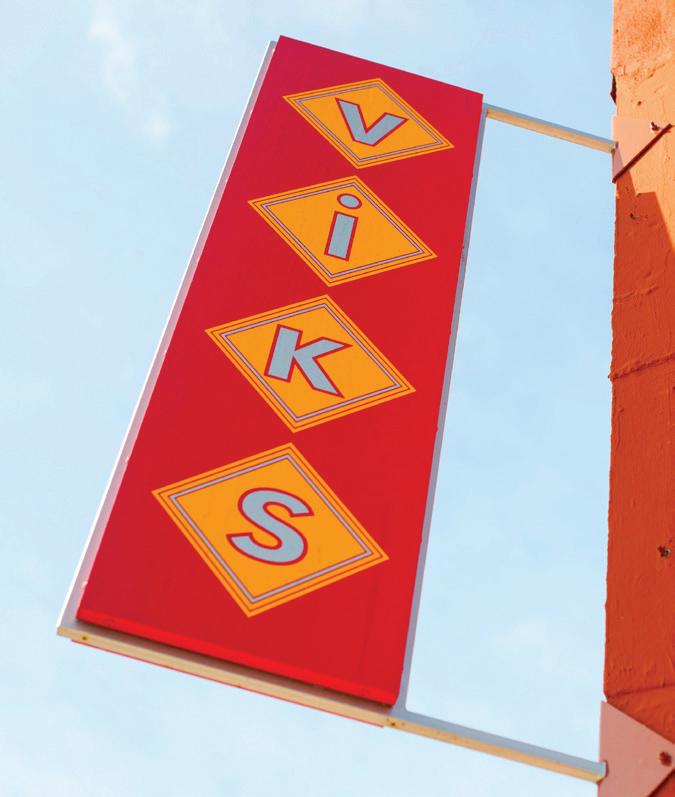
diners will wander into Viks Market, next door; only a few will realize that Viks has an entire wholesale business, selling Indian ingredients and cooking equipment to buyers in California and beyond.
Most customers are actually experiencing Viks backwards. The company started as a wholesale business in 1982; then in ’87, they noticed that a corner of their warehouse was always sitting empty. “My father figured, might as well have a store operating out of that space,” says Chopra. That store became Viks Market.
Chopra thinks that the eventual
opening of the restaurant in ’89 was more the result of a food craving than a business decision: His father wanted good Indian street food, and the only way to get it was to make it himself. The restaurant started out as a little stand selling chaat within the market. “Within the family, we always teased my father: ‘We know that you just miss that food!’” says Chopra.
In any case, it paid off—34 years later, Viks Chaat is bustling, beloved and a Michelin Guide pick. But it’s still undergirded by Viks Market and Viks Distributors, the quieter foundation beneath the surface of the Viks iceberg.
“There’s a lot of synergy between our three businesses,” says Chopra. The flexibility of having multiple product pathways allows the business to import large quantities of goods from India. “If I was just a market, and if I was trying to import container after container of chutneys, I wouldn’t be moving that kind of volume,” Chopra says. “What we import we are able to move, whether it is through our wholesale or distribution, or our market, or in our own restaurant.”
The foundation of the wholesale business is Indian chutneys, pickles and pastes. Through Viks Distributors, these products are routed into stores and restaurants, and to cafeterias at Bay Area college campuses and tech companies. They’re also available for anyone to buy at Viks Market: an underrated opportunity for Indian food enthusiasts to bring some of Viks’ most powerful flavors into their own kitchens.
Indian chutneys and pickles are encountered by most Western consumers only as an enticing daub on a thali platter at a restaurant, or in a tiny, capped takeout cup to accompany a freshly fried samosa. But these flavorpacked condiments have the potential to massively elevate home-cooked recipes, an easy refrigerator hack for creating better homemade Indian food.
Consider the Indian pickle, or achar. The salty bite of just a few spoonfuls of pickle can transform a recipe. “If you’re having something as simple as lentils and rice, that pickle just takes it to a whole other level,” says Chopra.
Achar-making goes back thousands

of years; in India, there are hundreds of varieties of pickle. In fact, there are hundreds of varieties of mango pickle alone: sweet, sour or salty, using unripe mango or ripe, with many different permutations of spices like mustard seed, star anise, fenugreek, turmeric and chili powder.
Indian pickles are created by fermenting fruits or vegetables in oil and spices, a process that can lead to a range of intense flavors: sugary or spicy or tangy—or, magically, all of these at the same time. The condiment is generally served alongside a dish rather than mixed in, allowing the diner to curate each bite. A tablespoon of pickle, paired with something as simple as plain rice, creates a dish that is intense and multidimensional, with the sweet-salty-sour layers of a finished dish.
This is an outsized amount of flavor for a little jar. Indian pickles are like the overpowered superhero of the culinary world—and they can come to the rescue of home cooks who are new to making Indian recipes and find that their dishes seem bland or one-dimensional compared to what they’ve had at restaurants. Often, this is through no fault of the recipe or recipe-follower, but rather a failure
to understand the plate as a whole, the condiments and sides and textural elements that bring a whole meal together.
In short: Don’t underestimate the power of the pickle. Asked about how to get started with using condiments Indianstyle, Chopra takes off: “I love a lot of different consistencies on my plate. In your fridge, have something that is a little sweet, have something that’s a little spicy, have something that’s a little tangy. Then you pair accordingly. If the meal is spicier, then put a dollop of the sweeter version. I love things like papadums—they add a whole crunch to the process. I love having fresh cucumber and tomatoes on the side, with the little squeeze of lime or lemon and some chaat masala sprinkled on it—it brings a whole other thing to it.”
For cooks aspiring to build a complete Indian meal, Chopra and the Viks team are happy to help anyone with questions. “We actually enjoy helping with recipes and figuring out how to get that done,” says Chopra. Viks Market carries nearly 20 varieties of pickle, from six types of mango pickle to lime pickle and garlic pickle (two of Chopra’s personal favorites). There’s also over a dozen varieties of chutneys, 15 curry and spice
In your fridge, have something that is a little sweet, have something that’s a little spicy, have something that’s a little tangy.
pastes, and a wide array of Indian snacks, grains, spices and other grocery goods.
“In terms of actually cooking with some of this, I say go for it,” says Chopra. “We’re all there to help you start. I normally don’t recommend going after the most complicated recipes right o the bat. Go with something simpler. Lentils, rice, and we’ll help you figure out a light temper for it, and the three ingredients that go in it.”
For now, Chopra isn’t interested in writing a cookbook. In fact, he warns against following a recipe too religiously and losing the improvisational fun of making good Indian food. “When I was young, back in college, that’s when I started experimenting with cooking,” he says. “And my philosophy would be: See a recipe, have a couple of shots of tequila, then start. Be a little loose with it.”
From there, the chef-in-training can make adjustments and tweaks, learn from mistakes and move to more complex Indian recipes. “Your confidence builds, and you get a sense of what it takes to cook the spices,” says Chopra. “I think the most complicated part is making sure that the spices cook.” His voice turns grave. “And don’t. Forget. The salt.” ❤










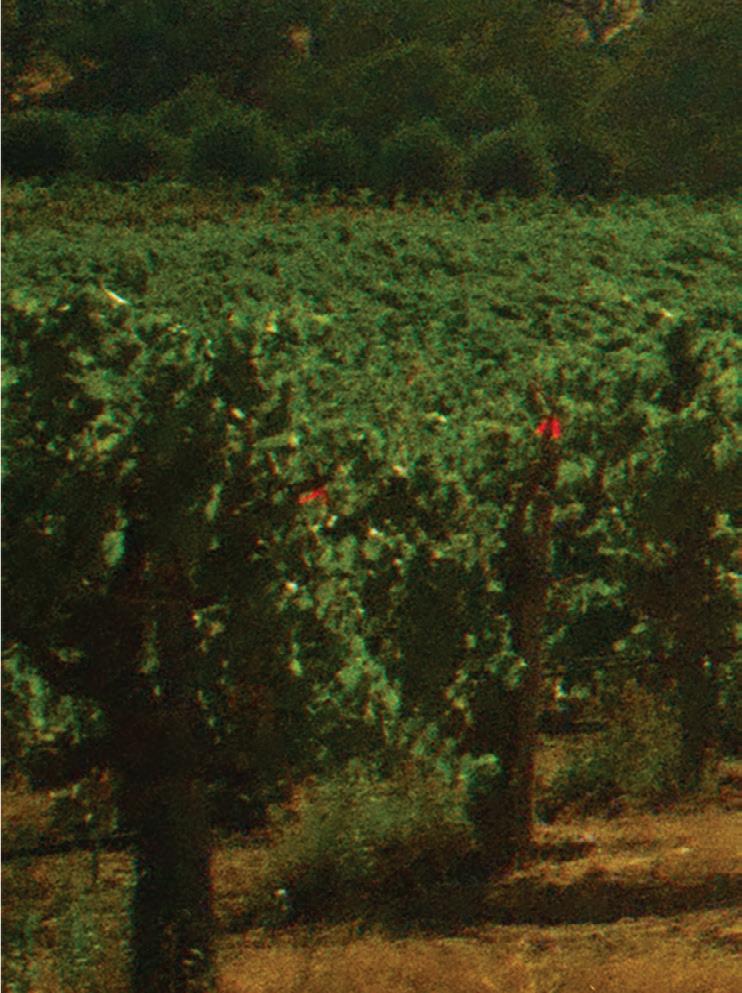


Since 2002, when winemaker Chris Brockway established Berkeley’s Broc Cellars, the focus has been on using organically grown grapes, fermented with the yeast that occurs naturally on them, resulting in a true natural wine. Brockway’s partner in life and business, Bridget Leary, recalled those early days.




“Chris loves zinfandel, so it was one of the first wines he wanted to make,” she said. Although he liked the older-style zinfandels, which were heavier and denser, he wanted to make a wine perfect for food pairing. So, Vine Starr, Broc Cellars’ first vintage, released in 2006, was originally a blend of zinfandel and syrah, inspired by “where Beaujolais and Northern Rhone meet.”
 BY Janis Hashe
BY Janis Hashe




By 2009, the wine was 100% zinfandel, but still harvested early to highlight acidity and fresh fruit. Vine Starr remains one of Broc Cellars’ signature wines. It’s been embraced, said Leary, by chefs and wine lovers from as far away as Norway and Japan. “Chefs love to pair it with fish dishes like cioppino,” she noted.
Over the years, it’s been joined by multiple other vintages, including the









2022 Broc Massa Cabernet Sauvignon, the 2023 Go Grapes White, the 2022 Grenache Gris Rosé and many others, all true to the original purpose of making natural, drinkable wines.
The biggest news at Broc is that in 2023, the winery purchased a vineyard in Mendocino, Fox Hill Vineyard, that it had been working with since 2013. Until the purchase, Broc had been a negociant, a
winery purchasing grapes from various vineyards to make its wine. “We always wanted a vineyard of our own,” said Leary, “but for many years, the dream didn’t feel tangible.” It took almost three years to finalize the sale, but, she said, “The past was leading us to do this.” Broc Cellars is now o cially a vigneron, a winegrower. The relationship began with what became a flagship wine for Broc, the Nero





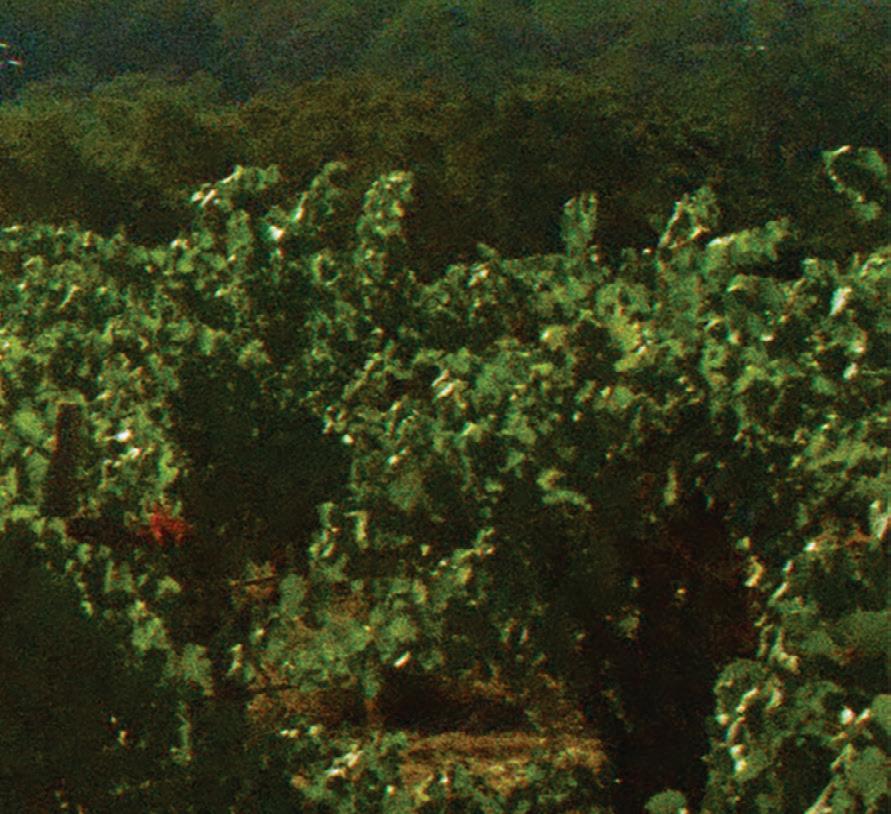
d’Avola, “lovingly referred to as The Badger,” said Leary, because the 60-acre Alexander Valley vineyard “has lots of critters.”
Brockway worked closely with Sam Bilbro of Idlewild Wines and Evan Lewandowski of Ruth Lewandowski Wines, who helped farm the land for over a decade. Fox Hill is a CCOF (California Certified Organic Farmers) vineyard, and Brockway will continue that tradition.
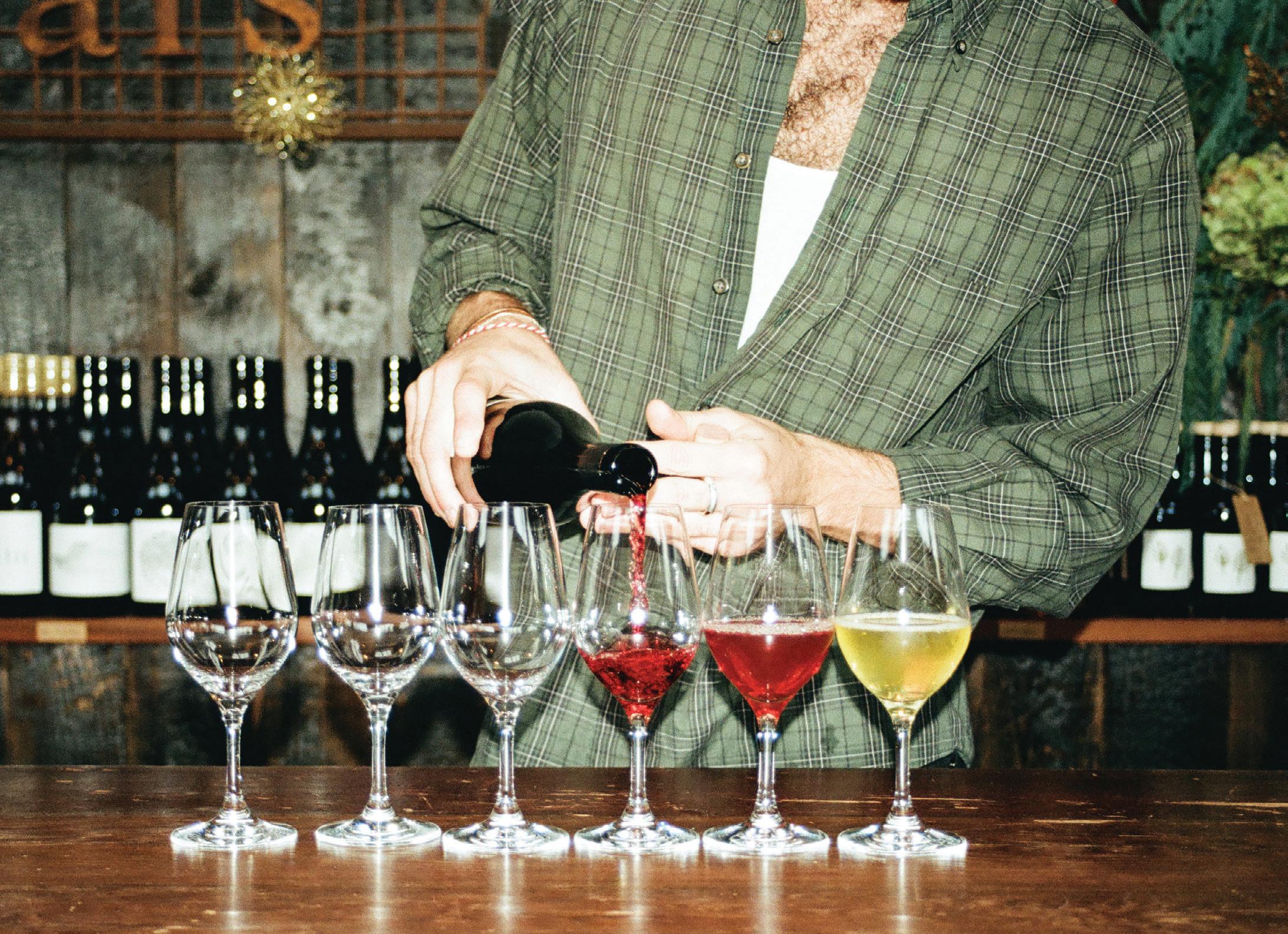
Cover crops are used to boost soil health, water retention and biodiversity, and grazing sheep both help keep the cover crops manageable and fertilize the soil. The early harvesting often results in lower alcohol wines, now in big demand with wine drinkers. Sulfur is never added during fermentation, although, depending on the wine, the style and the year, a small amount may be added at bottling. The wines are manipulated as little as possible during fermentation, and many are unfiltered.
Besides the Nero d’Avola, other Fox Hill grapes, including trebbiano and dolcetto, are already used in several of Broc Cellars’ wines, including Amore Rosso, Amore Bianco and Amore Blendo. Significantly, said Leary, Broc plans to continue Fox Hill’s tradition of growing Italian grapes, including “the library of obscure Italian varieties already growing there.” The winery will make many wines this year from Fox Hill grapes, “expanding our vision,” she added.
In April, Broc introduced two new wines made from Fox Hill grapes. One is a negroamaro, made from a deep red grape variety grown in the Puglia region of southern Italy for at least 1,500 years, with “rich black fruit flavors with a distinct finish of dried herbs,” according to wine site Wine Folly.
The second new wine is an arneis, a white wine associated with Italy’s Piedmont region. Fun wine fact: “Arneis” means “little rascal” in Piedmontese, likely called so because it can be tricky to grow. The grapes produce dry, but fullbodied, wine.
Both the new wines, as well as many of the Broc Cellars current releases, will be featured at the winery’s very popular tasting room in Berkeley’s Gilman District. Snacks and other beverages are served as well. The tasting room on Thursdays and Fridays, 2-7pm, becomes the wine bar “Bar Broc,” featuring selected wines to taste and compare.
“Come in and visit to taste the new







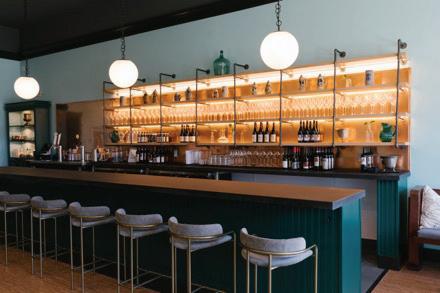
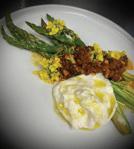





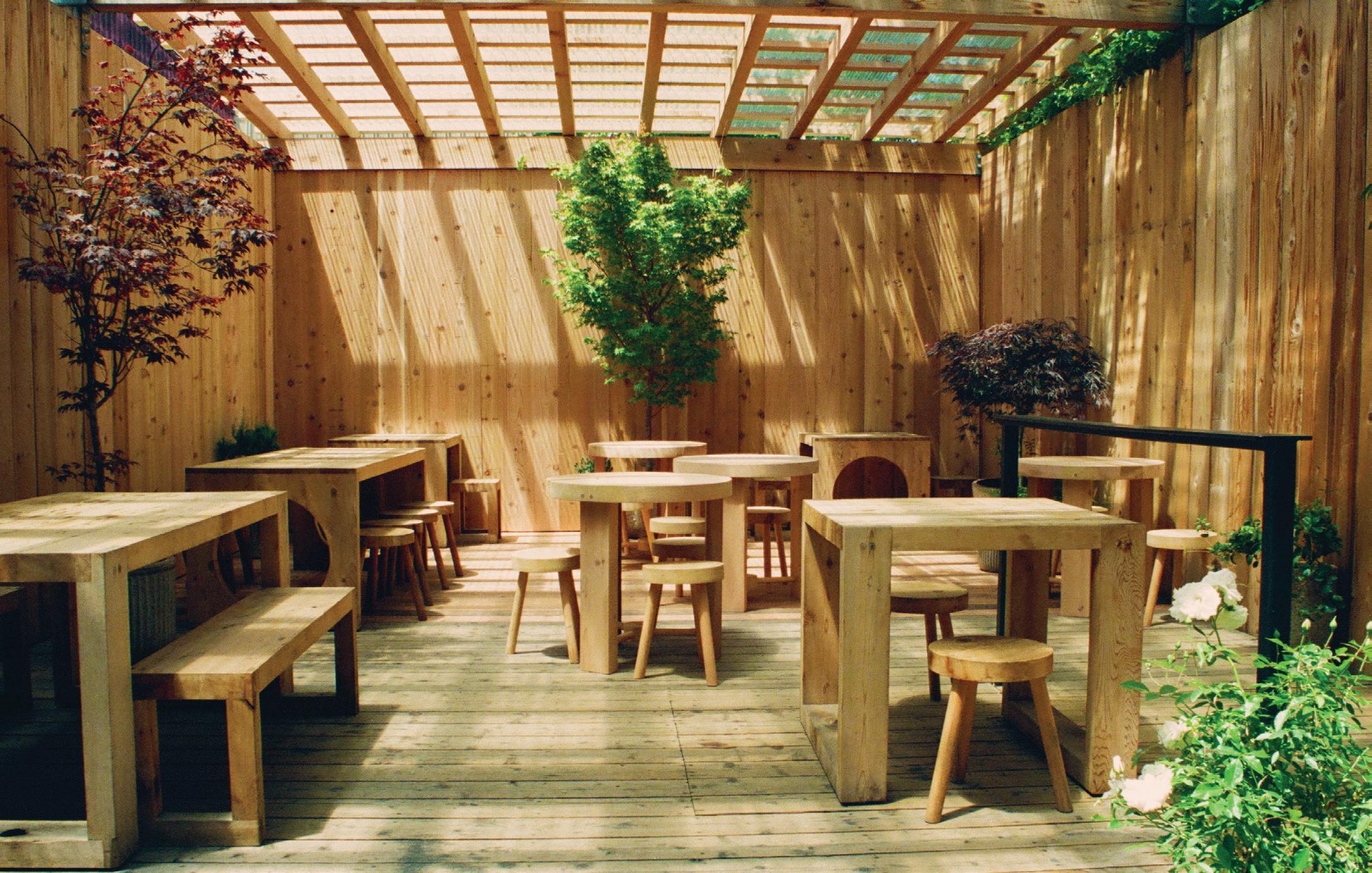
wines,” Leary invited East Bay Magazine readers. “Many people are not as familiar with the Italian varieties. Ask questions! Learn about what we do, and how we achieve the taste of Californian terroirs.”
Terroir can also be tasted in Broc’s unique Aqua Vino, created from the skins of valdiguié grapes left over from making its Love Rosé. The skins were macerated in water for three days, fermented for a week in stainless steel, transferred to pressurized tanks and then blended with Broc’s Nouveau wine. Water from the Sierra snowmelt in the Mokelumne River watershed—the same drinking water Berkeley uses—makes up 25% of the final product, resulting in a bubbly, low-alcohol drink. Aqua Vino also comes in cans.
Broc partners with a number of local restaurants, pop-ups and food trucks at the tasting room, “in a celebration of eating and drinking,” Leary said.
Reservations are available for indoor seating or on the covered patio. According to Broc materials, “kids and well-behaved doggies” are welcome.
The winery has also become known for its signature glassware, Broc Glass, which includes its hand-blown glasses and decanter by local craftsperson Rafi Ajl. Other products from the vineyards Broc sources are Fox Hill Extra Virgin Olive Oil; persimmon butter from the same vineyard, from a line called Jane Taylor Jams; and Camino Red Wine Vinegar.
More collaborations include the Fort Point Brewing Nouveau Farmhouse Ale, made with grapes from Ricetti Vineyard’s Mendocino Zinfandel; local craftsperson Cristina Gaitán’s napkins, tablecloths and shirts in her Una Ice Dye line; and an ongoing relationship with artist Marta Elise Johanson, who designs Broc’s labels.
Perhaps the most unusual Broc
collaboration is a 2023 album, Notes & Tones, which takes its name from the book by jazz drummer Art Taylor. It was produced by DJ Muggs, and made with samples from “cosmic jazz musician” Sun Ra. Designed to complement Broc’s Notes & Tones wine, only 700 LPs were pressed. The wine is a blend of tocai friulano and trebbiano, both from the Fox Hill Vineyard.
With all these uniquely Broc products and experiences, the winery prioritizes its connections in the community highly, said Leary, and so, she added, do Broc patrons. The relationships and community support, she noted, “are what a lot of people like.” That, of course, along with their favorite Broc wines, and looking forward to what the winery will come up with next.
Broc Cellars, 1360 5th St., Berkeley. 510.424.7323, broccellars.com. Tasting room open Thu/Fri, 2-7pm, Sat/Sun, noon-5pm.
Garbage is a manufactured product, created when otherwise recoverable resources are mixed and mashed together. Most rooms in every building in the whole country have a basket where this manufacturing begins. Discarded resources are put in one by one, then dumped into a larger bin, and then into a truck with a more modern body based on this one. A hydraulic piston smashes everything together. The objective is to pack in more cargo before the truck has to be driven to where it can dump onto the land, to be covered in a “sanitary“ way. Liquids leach out and make their way into the planet's

water eventually These “sanitary” methods of filling the land (hence “sanitary landfills”) also provide for anaerobic decomposition of organic materials – which makes methane.
Landfills are the largest human-created source of methane. In the short term methane is 80-100 times more powerful than carbon dioxide to warm the planet.
Making garbage changes the climate!
If you're not for Zero Waste, how much waste are you for?
NASA's Astronomy Picture of the Day from February 12, 2002, colored the methane in the Earth's atmosphere green, and an animation showed how it spins to the poles NASA said, “Methane (CH4) is second only to carbon dioxide (CO2) in creating a warming greenhouse effect The largest abundance released by the US is created when anaerobic bacteria break down carbon-based garbage in landfills.” [Emphasis added ]

Urban Ore has been salvaging for reuse in Berkeley since 1981. We have 3 acres of secondhand goods, open 360 days a year until 5:00PM, 900 Murray St. near 7th x Ashby Come shop





